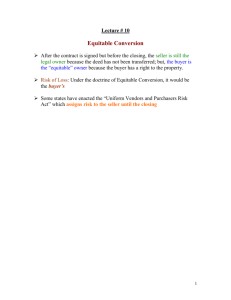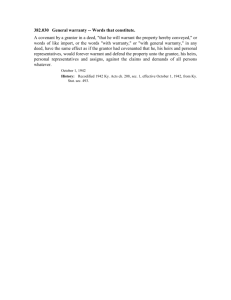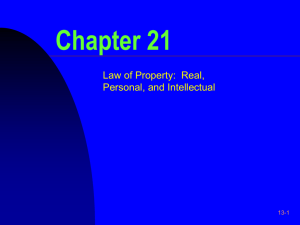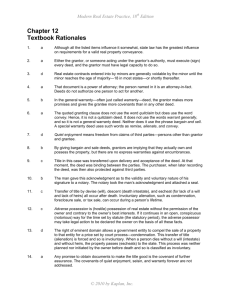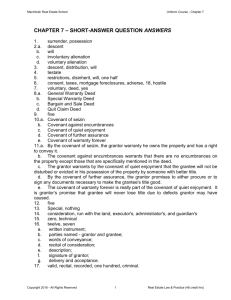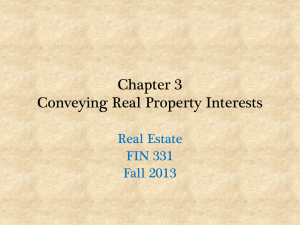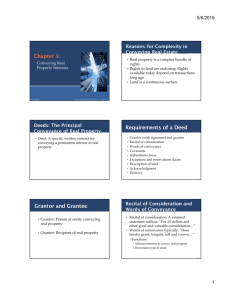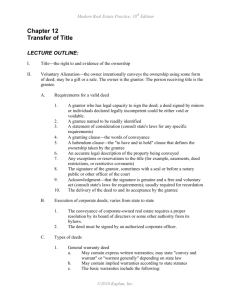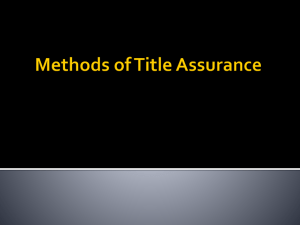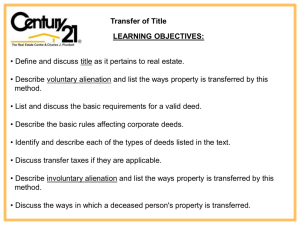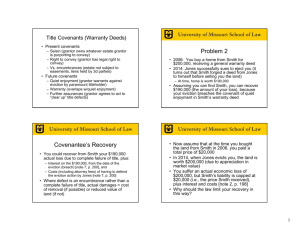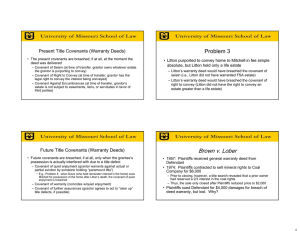ownership - bob brooks school
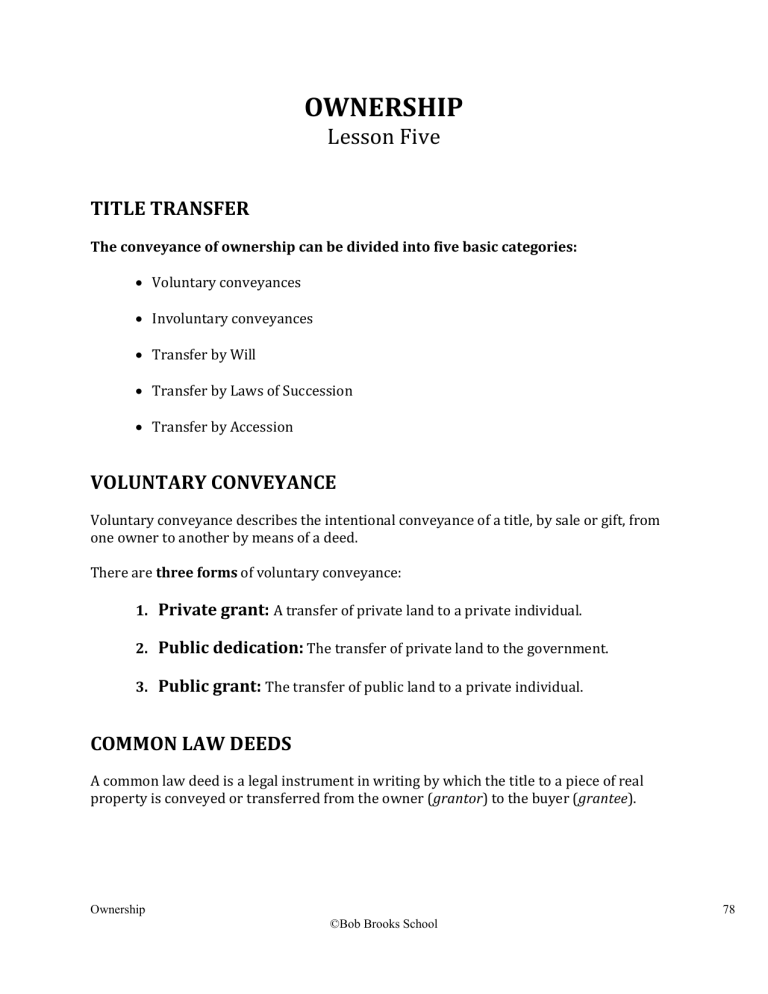
OWNERSHIP
Lesson Five
TITLE TRANSFER
The conveyance of ownership can be divided into five basic categories:
• Voluntary conveyances
• Involuntary conveyances
• Transfer by Will
• Transfer by Laws of Succession
• Transfer by Accession
VOLUNTARY CONVEYANCE
Voluntary conveyance describes the intentional conveyance of a title, by sale or gift, from one owner to another by means of a deed.
There are three forms of voluntary conveyance:
1.
2.
3.
Private grant:
Public dedication:
Public grant:
A transfer of private land to a private individual.
The transfer of public land to a private individual.
The transfer of private land to the government.
COMMON LAW DEEDS
A common law deed is a legal instrument in writing by which the title to a piece of real property is conveyed or transferred from the owner ( grantor ) to the buyer ( grantee ).
Ownership
©Bob Brooks School
78
Important points to know about deeds:
• Only the grantor has to sign the deed.
• The Habendum or “to have and to hold” clause: States the form and quality of the title being transferred, such as a fee simple or a life estate. Example: “To John
Smith and his heirs to have and to hold forever” would describe a fee simple absolute title.
• The deed must be “acknowledged” , in which a declaration is made by a person to a qualified official that he/she freely and voluntarily executed the deed.
• The deed must be delivered and accepted for the title to transfer.
• Recordation is not required by law but it is very important to show the priority of the deed. It gives constructive notice to third parties.
• A legal description must be given.
WARRANTIES IN DEED
Covenant of seisin: The grantor states that he/she is the owner or is “seized of” the property and has the right to sell it.
Covenant against encumbrances: The grantor states that there are no encumbrances on the title that the grantee has not been made aware of.
Covenant of quiet enjoyment: The grantor states that the grantee will be able to quietly enjoy the benefits of ownership without having to worry about others laying claim to the title.
Covenant of warranty forever: The grantor transfers any future interests in the property he/she may have gained to the grantee.
Covenant of further assurance: The grantor warrants against the acts of others that came before him in the chain of title.
Ownership
©Bob Brooks School
79
TYPES OF DEEDS
General warranty deeds: The best form of deed in common law. It contains all five of the covenants warranting back through all of the private owners that the title is free of defects.
Special warranty deed: Warrants the title only for the actions of the present owner (first two warranties).
Bargain and sale deed: States that the grantor is the owner but makes no other warranties (first warranty).
Quit claim deeds: No warranties at all. This is used mainly for clearing up title defects. It creates the least liability on part of the grantor.
Quiet Title: Clears the cloud in the courts.
PERSONAL PROPERTY
Personal property is conveyed by a “Bill of Sale”.
According to the Uniform Commercial Code , any sale of personal property over $500 must be in writing to prove ownership.
Ownership
©Bob Brooks School
80
